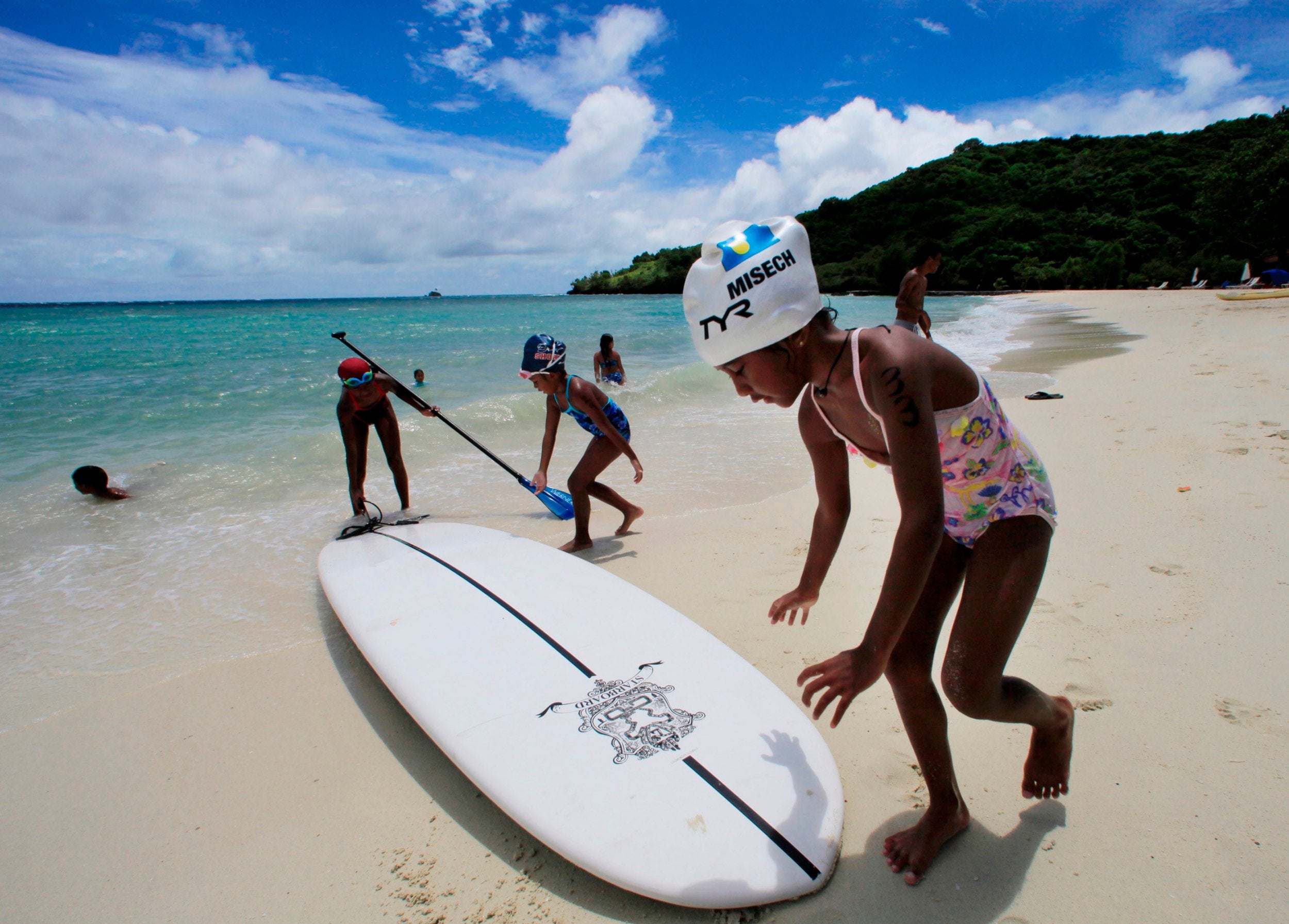Pacific Island nation Palau becomes first country in the world to ban ‘reef-toxic’ sun cream
Sellers face fines of up to £753

Your support helps us to tell the story
From reproductive rights to climate change to Big Tech, The Independent is on the ground when the story is developing. Whether it's investigating the financials of Elon Musk's pro-Trump PAC or producing our latest documentary, 'The A Word', which shines a light on the American women fighting for reproductive rights, we know how important it is to parse out the facts from the messaging.
At such a critical moment in US history, we need reporters on the ground. Your donation allows us to keep sending journalists to speak to both sides of the story.
The Independent is trusted by Americans across the entire political spectrum. And unlike many other quality news outlets, we choose not to lock Americans out of our reporting and analysis with paywalls. We believe quality journalism should be available to everyone, paid for by those who can afford it.
Your support makes all the difference.Palau has become the first nation in the world to ban sun cream which damages coral reefs and other sea life.
The Pacific island country, which is in the Western Pacific ocean near the Philippines, has banned sun cream which contains common components such as oxybenzone from being either applied or sold in shops.
Tourists will have the forbidden suncream seized when entering Palau and shops which sell it could be hit with fines of up to $1,000 (£753).
The International Coral Reef Foundation said the banned chemicals were “known environmental pollutants" and that "most of them are... incredibly toxic to juvenile stages of many wildlife species”.
“We have to live and respect the environment because the environment is the nest of life,” Tommy Remengesau, Palau's president, said.
He told the AFP news agency: “When science tells us that a practice is damaging to coral reefs, to fish populations, or to the ocean itself, our people take note and our visitors do too.
“Toxic sunscreen chemicals have been found throughout Palau's critical habitats, and in the tissues of our most famous creatures.
“We don't mind being the first nation to ban these chemicals, and we will do our part to spread the word.”
The new measures, which are an element of Palau's new Responsible Tourism Education Act, came into force on Wednesday. They form just one part of a broader government goal to safeguard the island nation’s environment from tourists.
The tourism industry is one of Palau’s biggest generators of income - particularly for diving.
Palau, which has a population of around 20,000 dispersed across hundreds of islands, became the second nation worldwide after Fiji to ratify the Paris Climate Agreement.
Global warming is predicted to have a damaging effect on Palau’s waters and may cause them to get more acidic, endangering corals and agitating fish stocks.
It comes after Hawaii became the first place to ban sun creams which contain oxybenzone and octinoxate in May in a bid to safeguard its coral reef.
Join our commenting forum
Join thought-provoking conversations, follow other Independent readers and see their replies
Comments